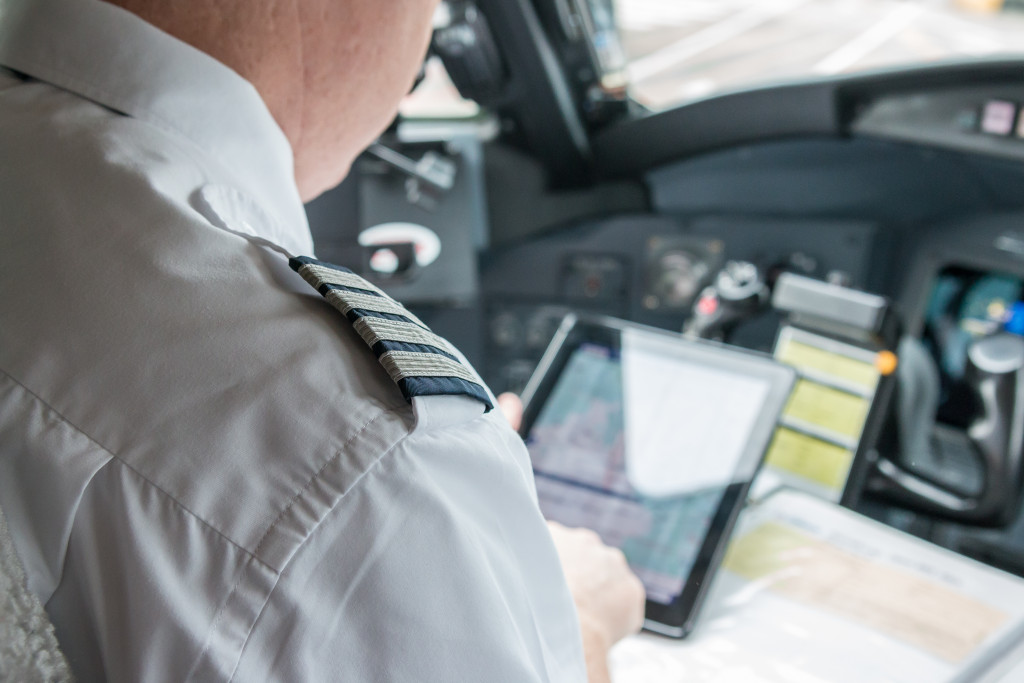- Pursuing an aviation career requires dedication, knowledge, and passion for the industry.
- Researching potential roles within the sector is essential to identify which path to pursue.
- Acquiring the necessary education and training are important steps to becoming an aviator.
- Developing interpersonal skills and networking with industry professionals is crucial to success in aviation.
- Participating in aviation organizations as well as events provides invaluable exposure to the industry.
Pursuing an aviation career can be one of the most fulfilling and exciting decisions a person can make. As a sector steeped in history and constantly advancing technology, aviation is an industry that offers great possibilities, including a range of career options for both aspiring pilots and those interested in aviation management.
One aspect of the aviation industry that sets it apart is many individuals’ passion and love for this field. A passion for aviation is crucial, as pursuing a career in this industry requires significant dedication and commitment.
This passion should be focused on and developed by actively pursuing opportunities that further expand knowledge in the field. To secure success, an individual should be dedicated, curious, self-motivated, and willing to learn and keep updated with the latest happening in this ever-evolving industry.
Whether it be travel, the intricacies of aircraft mechanics, designing airplanes, or air traffic control, this diverse industry has plenty of opportunities.
Exploring the Aviation Industry
To embark on the journey of pursuing an aviation career, it’s essential to have a solid foundational understanding of the industry.
Individuals must identify the sector that excites them the most, whether designing or flying them. After placing, the person must research the interests and passions that align with that sector.
Understanding the Different Sectors Within Aviation
Aviation is a broad field that provides various career opportunities. Understanding the different sectors within the aviation industry is a crucial step in deciding which path to pursue.
Each sector differs concerning the qualifications, work culture, nature of work, and skills required to be successful. Knowing the industry well enough could give one an edge over others when making informed decisions.
Researching Various Career Options and Roles
When pursuing an aviation career, it’s essential to research potential career options and roles that align with the individual’s skills, interests, and aspirations. Studying makes one better informed, giving one a better chance of understanding the industry’s needs, what those roles entail, and how to develop much-needed skills.
With the current technological advancement, avenues such as Artificial Intelligence, Unmanned Aerial Vehicles (UAVs), and customized experiences have revolutionized the aviation industry and created new job titles and roles, making the industry even more dynamic.
Acquiring the Necessary Education and Training
Before embarking on your journey to pursue an aviation career, it is crucial to understand the requirements and necessary qualifications. Most aviation jobs require a certain level of education and training.
Bachelor’s Degree in Aviation
One of the most popular ways to enter the aviation industry is through a bachelor’s degree in aviation. Programs in aviation management, aviation technology, aviation safety, and air traffic control are just a few options available to aspiring aviators.
These programs provide a foundation of knowledge and skills needed to begin an aviation career.
Flight Training Programs
Flight training programs focus on providing practical training in flying an aircraft. These programs typically include flight instruction, simulator training, and ground school lessons.
Aspiring aviators can enroll in flight training programs to gain the skills and flight hours required to obtain a private pilot license and other certifications.
For instance, a private pilot license is a valuable asset for anyone who wants to fly a personal aircraft or pursue an aviation career. One of the benefits of a private pilot license is that it allows holders to fly small planes and helicopters and can be the first step towards pursuing higher-level licenses and ratings.
A private pilot license requires initial training, passing written and practical exams, and completing at least 40 hours of flight time.
Aviation Maintenance Technician School
Airplanes and helicopters require regular maintenance to stay in good condition and operate safely. Aviation maintenance technicians (AMTs) are responsible for aircraft maintenance, inspection, and repair.
Attending an AMT school provides the necessary training to become a certified aviation maintenance technician. AMT programs cover aircraft systems, electronics, avionics, and safety topics.
Aviation Management Courses
For those interested in the business and management side of aviation, several aviation management courses are available. These courses focus on aviation’s organizational and managerial aspects, including airport management, airline management, and aviation law.
Aviation management courses benefit individuals who want to pursue a career in aviation management or leadership roles.
Building a Strong Foundation
Pursuing an aviation career requires significant effort and determination. It would be best if the individual aimed to build an excellent foundation by engaging in rigorous training programs aligning with their career aspirations.
As the aviation industry requires precise technical knowledge, an excellent education, and a strong skillset, individuals must invest in themselves and prepare for the challenges ahead.
Developing Essential Skills for Success in Aviation
To excel in aviation, one must develop various essential skills for success. These skills include interpersonal communication, problem-solving, teamwork, situational awareness, and attention to detail.
Aviation skills are more than just technical skills. However, a holistic approach to these skills enhances a person’s aptitude and potential to succeed in the aviation industry.
Seeking Mentorship and Guidance From Industry Professionals
Having a mentor can be a tremendous asset to those embarking on a career within the aviation industry.
Mentorship involves receiving guidance and knowledge from an experienced industry professional, enabling the person to build networks, learn the dos and don’ts, and sometimes provide references when seeking career advancement.
Engaging in Networking Opportunities and Aviation Organizations
Networking is critical in many career fields, including aviation. Aviation organizations and events provide an excellent platform for those interested in an aviation career to meet and learn from industry professionals and network with individuals who share the same passion.
Those who desire to be aviators should engage and make every effort to be a part of organizations or events that provide much-needed exposure to the aviation industry.
Gaining Insights Into the Industry’s Current Trends and Future Prospects
With constantly changing innovations, there has never been a more exciting time to enter the aviation industry.
By keeping track of current industry trends, the individual can gain valuable insights into the ongoing industry demands and the skills needed to succeed.

An aviation career can be thrilling and rewarding but requires dedication, passion, and hard work to succeed. To pursue an aviation career, aspiring aviation professionals must understand the aviation industry’s ecosystem, the key sectors, and the unique roles each has to offer.
Building a solid foundational knowledge base, developing essential skills, and seeking mentorship and networking opportunities are critical to success as an aviator. With the proper preparation, anyone can realize their dream of a career in the aviation industry.




